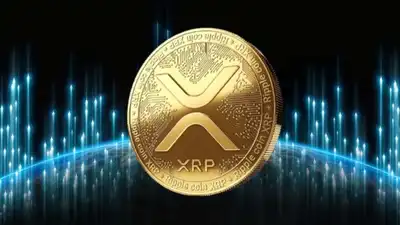Introduction
In the rapidly evolving world of digital payments, Ripple has emerged as a formidable player, revolutionizing the way we conduct cross-border transactions. Unlike traditional banking systems, Ripple operates on a decentralized platform, offering a peer-to-peer approach that facilitates faster, more cost-effective, and secure international transfers. In this article, we will explore the concept of decentralization in the Ripple network and understand how it has transformed the landscape of global payments.
Understanding Decentralization in the Ripple Network
At the heart of Ripple’s success lies its decentralized architecture, which allows participants to engage in direct peer-to-peer transactions. This means that individuals and institutions can transact directly with each other without the need for intermediaries like banks. This innovative approach eliminates the delays and added costs associated with traditional cross-border transfers, making Ripple a game-changer in the world of digital payments.
The Role of the XRP Ledger
Central to the decentralized nature of Ripple is the XRP Ledger, a distributed ledger technology that serves as the backbone of the network. Unlike centralized databases, which rely on a single entity for record-keeping, the XRP Ledger is maintained and validated by a network of independent validators. This distributed approach ensures that transactions are securely recorded and cannot be altered or tampered with, enhancing transparency and trust.

The XRPL Consensus: Ensuring Security
To maintain the integrity and security of the Ripple network, the XRPL Consensus, a unique consensus algorithm, comes into play. The XRPL Consensus relies on a diverse set of validators, each independently verifying and agreeing on the validity of transactions. By reaching a consensus through a supermajority of validators, the network ensures that all transactions are securely approved and recorded, safeguarding against potential attacks and fraud.
The Advantages of Ripple’s Decentralization
- Enhanced Security and Resilience: Ripple’s decentralized nature makes it highly secure and resilient. Unlike centralized systems vulnerable to single points of failure, the distributed ledger and consensus algorithm bolster the network’s defenses against potential threats.
- Transparency and Immutability: Transactions recorded on the XRP Ledger are transparent and immutable. This means that all participants can verify and track transactions, promoting a high level of transparency and accountability within the network.
- Trustless Transactions: Decentralization allows for trustless transactions, meaning parties can engage in secure exchanges without relying on a third party. The consensus algorithm ensures that transactions are independently verified, reducing the need for intermediaries and minimizing risks.
- Real-time Settlement: With no intermediaries involved, cross-border transactions on the Ripple network can be settled almost instantly. This real-time settlement is a vast improvement over the time-consuming processing of traditional international payments.
- Cost-Effectiveness: The absence of intermediaries in the Ripple network translates into lower transaction fees compared to traditional banking systems. This cost-effectiveness makes it an attractive option for businesses and individuals alike, irrespective of the payment amount.
Conclusion
In conclusion, Ripple’s decentralized architecture has propelled it to the forefront of the digital payment revolution. By enabling direct peer-to-peer transactions and utilizing the XRP Ledger and XRPL Consensus, Ripple provides a faster, more secure, and economical alternative for cross-border payments. Decentralization not only enhances the network’s security and transparency but also promotes financial inclusion by making international transactions more accessible and efficient. As decentralized technologies continue to reshape the global financial landscape, Ripple remains a frontrunner in driving the future of digital payments, fostering a more interconnected and seamless world of global finance.




